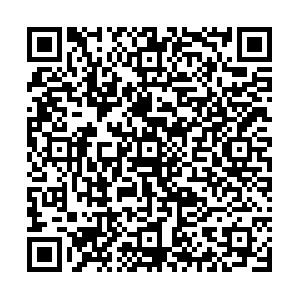Children’s Awareness of“Friends” and Friendship in Senior Kindergarten
-
摘要: 幼儿对朋友的认知及其交友行为的发展有利于促进幼儿社会性的发展,也有助于家长和教师开展教育活动。本文以大班幼儿为研究对象,采用访谈法与自然观察法就大班幼儿对朋友的认知现状和交朋友的特征进行研究。结果显示:大班幼儿对朋友的内涵理解停留在表象,少数理解内在含义;朋友互动以积极情绪为主,认为朋友是亲密和平等的。交朋友的范围具有明显的时间和空间特征:一是朋友交往的时间长、频率高;二是保持友谊的时间长;三是幼儿结交朋友的可能性与空间距离呈负相关。结合影响幼儿对朋友的认知的因素和交朋友的原因,为促进幼儿的社会性发展,更好地提高其对朋友的认知水平并结交朋友,教师和家长要关注幼儿,鼓励幼儿与同伴交往;融入生活,提高幼儿对朋友的理解水平;提供机会,创造幼儿交往的条件;结合情境,提升幼儿的交友策略。Abstract: The development of children's cognition of friends and the behavior of making friends is conducive to the development of children sociality, and also helps parents and teachers to carry out educational activities. In this study, the children in senior kindergarten class were selected as the research object, and the cognitive status and characteristics of friends of senior class were studied and analyzed by using the interview and natural observation method. The results showed that the children's understanding of the connotation of friends in senior class remained in the appearance, and a few understood the inner meaning. The interaction between friends is dominated by positive emotions, believing that friends are close and equal. The range of making friends has obvious time and space characteristics. First, the time of making friends is long and the frequency is high. Second, keep the friendship for a long time; Third, the children's friends and spatial distance are positively correlated. In order to promote children's social development, improve their cognition of friends and making friends, four educational suggestions are put forward based on the factors influencing children's cognition of friends and the reasons for making friends. First, teachers and parents should pay attention to children and encourage them to communicate with their peers. Second, integrating into life and improving children's understanding of friends. Third, providing opportunities to create conditions for children to interact. Fourth, improving the children's strategy of making friends according to the situation.
-
Key words:
- senior kindergarten children /
- friend /
- cognition /
- make friend
-
[1] 张兰萍. 基于角色游戏的幼儿同伴协商策略优化[J]. 科教文汇(上旬刊), 2019(10):152-153. [2] 张文新. 儿童社会性发展[M]. 北京:北京师范大学出版社, 1999:132. [3] 边玉芳. 什么才是好朋友——儿童理解友谊概念的发展[J]. 中小学心理健康教育, 2013(13):32-33. [4] 艾森克. 心理学——一条整合的途径[M]. 上海:华东师范大学出版社, 2000:473. [5] 方富熹. 幼儿认知发展与教育[M]. 北京:北京师范大学出版社, 2003:257. [6] 张凤英. 3-7岁幼儿友谊观发展调查[J]. 内蒙古教育学院学报, 1993(S1):106-109+74. [7] 劳拉·E. 贝克. 儿童发展[M]. 吴颖, 等, 译. 南京:江苏教育出版社, 2002:88-92. [8] 吴育红. 学前儿童异龄同伴交往行为的特点[J]. 教育评论, 2013(2):39-41. [9] 邢莉莉. 3-5岁幼儿对"朋友"的理解研究[D]. 武汉:华中师范大学, 2011. [10] 顾援. 儿童友谊认知发展研究[J]. 心理发展与教育, 1990(1):17-23. [11] 庞丽娟. 同伴提名法与幼儿同伴交往研究[J]. 心理发展与教育, 1994(10):18-21. [12] 邓素云. 中大班幼儿对"好朋友"的理解研究[D]. 南昌:江西师范大学, 2019:19-66. [13] 王智莉. 幼儿园中的"好朋友们"——大班留读幼儿朋友圈同伴文化研究[D]. 成都:四川师范大学, 2018:23-25. [14] Papadopoulou, Marianna. The "Space" of Friendship:Young Children's Understandings and Expressions of Friendship in a Reception Class[J]. Early Child Development and Care, 2016, 186(10):1544-1558. [15] 岳孝龙, 胡晓毅, 刘艳虹. 孤独症儿童友谊研究述评[J]. 中国特殊教育, 2016(8):37-43. [16] 邓丽群, 陈彤. 试论亲子关系对儿童社会性发展的影响[J]. 中华文化论坛, 2008(S1):143-144. [17] 魏红云, 闵元媛, 王鹿鹿. 幼儿同伴关系与社会性发展的研究[J]. 科教文汇(中旬刊), 2019(4):162-163+174. [18] 王萍. 混龄班幼儿的交友研究[D]. 成都:四川师范大学, 2013:22-25. [19] Caron Carter, Cathy Nutbrown. A Pedagogy of Friendship:Young Children's Friendships and How Schools Can Support Them[J]. International Journal of Early Years Educatin, 2016, 24(4):1-19. [20] 陈秀云, 陈一飞. 陈鹤琴全集(第五卷)[M]. 南京:江苏教育出版社, 2018:59. -

 点击查看大图
点击查看大图
计量
- 文章访问数: 1135
- HTML全文浏览量: 270
- PDF下载量: 53
- 被引次数: 0



 下载:
下载: